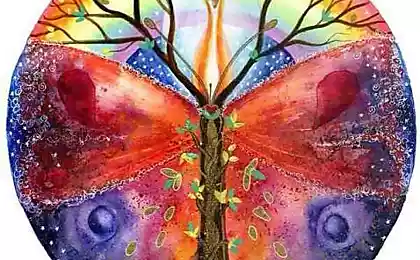224
Eckhart Tolle: How to let go of a negative reaction

Introduction
Everyone faces situations where someone says something offensive or unfair. In such moments, our consciousness automatically reacts negatively, causing anger, irritation, or even a desire to respond in kind. But there is a way to go beyond this automatic response and reach a state of inner peace.
What does Eckhart Tolle say about negative reactions?
Eckhart Tolle, author of books "The Power of the Present." and New Earth.It offers an alternative approach to the perception of negative emotions. He argues that any negative reaction is not a reality, but a projection of our ego that feeds on conflicts and emotional outbursts.
1. Awareness of the moment
The first step to getting rid of negativity is awareness. When you realize that there is irritation, anger or fear inside, you cease to be their victim. Watch the emotion, but don’t identify with it.
2. Don't resist the emotion.
Usually people either suppress negativity or throw it out. Both options do not lead to harmony. Eckhart Tolle proposes a third way: to let the emotion be, without amplifying it.

3. Breathing as an instrument
When you feel an emotion coming at you, use your breath. Deep inhalation and slow exhalation help ground in the present moment. Try to pay attention to the sensation of air coming in and out of the body.
4. Separation of self and ego
Your personality is not your emotions. When someone tries to hurt you, they are not referring to your true self, but to your ego. Understanding this helps not to take the words of others personally.
How do you learn to react differently?
- Practice mindfulness.Notice emotions, but don’t let them control you.
- Don't answer immediately.Give yourself a few seconds to realize.
- Use breathing practices.Short meditations help restore balance.
- Accept the situationThere is not always a need to fight.
- Develop an internal observerWho is angry with you, you or the ego?
If you feel that emotions are heating up, try to shift your attention to the surrounding space. Notice sounds, smells, colors – it helps to weaken the influence of thoughts.
6. Awareness of the illusion of time
Most of the suffering comes from thinking about the past or the future. Focus on the present moment – there is no resentment in it, there is only the fact of what is happening.

Conclusion
The ecology of consciousness begins with the ability to recognize and let go of negative reactions. It takes practice, but over time you will learn to understand difficult situations. calmly and consciously. Freeing yourself from automatic reactions is the key to a more harmonious life.
Glossary
- Mindfulness The practice of observing your thoughts and emotions without involvement.
- Ego A self-image that seeks to protect and dominate.
- Meditation. Techniques to focus the mind and relieve stress.
- Breathing practices Methods of managing emotions through conscious breathing.
- Eckhart Tolle - a modern philosopher and writer, popularizer of awareness.
- Ecology of consciousness The concept of clearing the mind of unnecessary emotional and mental pollution.
The main tests that you should do to be calm for your health
How to wear compression stockings class 1: advice from doctors























